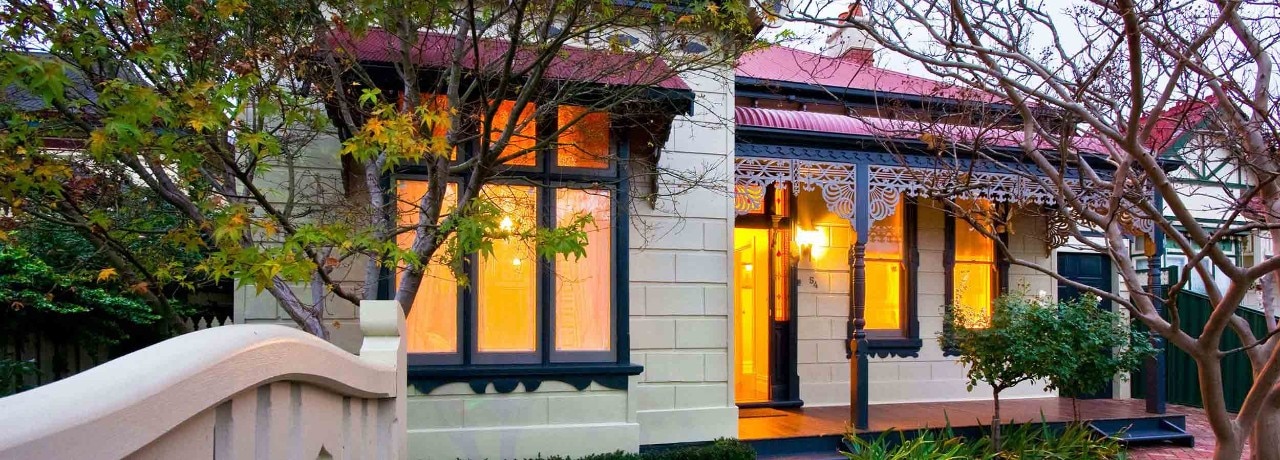Budgeting a renovation | Advice on scope and accurate costs - NAB
Define your renovation goals
Renovations can be an exciting time to re-shape the look and feel of your home, however before you start getting into the details, it’s important take a step back and clarify ‘why’ you’re renovating. For instance:
Do you need more space?
Is your kitchen too dated?
Are you looking to boost your home’s resale value?
Being clear about what you’re trying to achieve is a great first step to help you focus on your renovation costs. Once you know what you’re aiming for, start with a list of must-haves and nice-to-haves so you can prioritise what is essential and what is an optional extra.
Be clear about your budget
Once you know what you’re looking to achieve, the next step is figuring out what you can afford. Take a good look at your finances and decide how much you’re comfortable spending without draining your savings. To help you plan, you can also use renovation and building calculators online to help you get a rough estimate of costs. If you think you’ll need to take on some debt, you have options like using equity, personal loans for renovation or construction loans. A personal loan borrowing calculator can offer some estimates on how much you can borrow. If you need support deciding, it’s best to get advice from a financial advisor.
Use your home’s equity
If you’re looking finance a large-scale renovation without dipping too deeply into your savings, tapping into your home’s equity can be an option. Home equity is essentially the difference between what your home is worth and what you still owe on your mortgage. You can borrow against the equity by topping up your existing home loan. Your lender will do a valuation of your property to determine equity available and how much you can borrow, while keeping your loan-to-value ratio (LVR) within acceptable limits.
It's important to be cautious that borrowing against your home’s equity means you’re taking on more debt, which in turn can carry more risk. That’s why it’s important to only borrow what you can repay and make sure your renovations boost your home’s value.
Get multiple quotes from your tradespeople
If you’re doing a big renovation or extension, you need plans and designs that you can get proper quotes on. Start by getting quotes from multiple builders or tradespeople as it’s a great way to make sure you're getting the best deal you can. You'll be surprised how much these quotes vary. Also consider the contractor's experience, how well they communicate as well as reviews and recommendations from friends and family.
Break down the costs
Review the costs of labour, materials, and any permits you’ll need and don’t forget to include taxes and fees in your calculations.
The build costs will depend on a number of things, such as:
- The materials you want to use
- The tradespeople you employ
- The quality of work, finishes and fittings
- The size of the job
- The location of your site.
It’s always helpful to assume a project will cost more than expected. A 10-20% buffer in your budget will make sure you are ready if any emergencies or surprises that appear, like hidden water damage or delays.
Remember: A budget that feels tight now will save you from financial stress later. Consider the maximum amount you’re willing to spend and work backwards to fit everything into that number.
Monitor your spending and adjust accordingly
When the renovation begins, it’s important to keep tracking costs against your budget and make sure you stay on track or are able to adjust if things take an unexpected turn. You might need to put off one part of the renovation or opt for less expensive alternatives to certain materials. Always pay contractors in stages as this will give you more control and ensure the work gets done right.
Think about long-term value
When you’re budgeting, think about the long-term impact of your renovation and focus on projects that improve your home’s functionality, energy efficiency or resale potential. If you can, include some basic energy-saving ideas in your renovation like:
- LED lights
- rainwater tanks
- quality insulation
- solar panels.
Think of your renovation as an investment that doesn’t just help you today, but for all the years to come.
Ready to finance your home renovation?
Talk to one of our home loan experts today.
Explore other life moments
Renovation lending: How to finance your home makeover
Explore finance options for your home renovation.
Understanding construction loans at NAB
How construction loans can help you save on interest – and control costs.
Preparing your home for sale
See how minor cosmetic touch ups can boost your home’s appeal.
Related products and services
Home loans
Home loans for every need with tools, calculators and guides to help you choose.
Personal loan for a home renovation
Renovations can be full of surprises but your finances shouldn't be. Get A NAB Personal Loan for all your home renovations.
Home and Contents Insurance
Cover your home and contents with NAB insurance. Compare policies now.
Contact us for home loan related queries
This is how you can get in touch.
Start a conversation with a banker
- Log into either NAB Internet Banking or the NAB app.
- Tap on the message icon.
- Type ‘speak to a person’ in the conversation window.
Call us
Speak to a home loan expert about a new or existing home loan.
Monday to Friday, 8:00am to 7:00pm (AEST/AEDT)
Saturday to Sunday, 9:00am to 6:00pm (AEST/AEDT)
Book an appointment
Make an appointment to see us at your nearest branch, ask a mobile banker to come to you or ask us to call you back.
Terms and Conditions
Apologies but the Important Information section you are trying to view is not displaying properly at the moment. Please refresh the page or try again later.
The information contained in this article is intended to be of a general nature only. It has been prepared without taking into account any person’s objectives, financial situation or needs. Before acting on this information, NAB recommends that you consider whether it is appropriate for your circumstances. NAB recommends that you seek independent legal, financial and taxation advice before acting on any information in this article.




